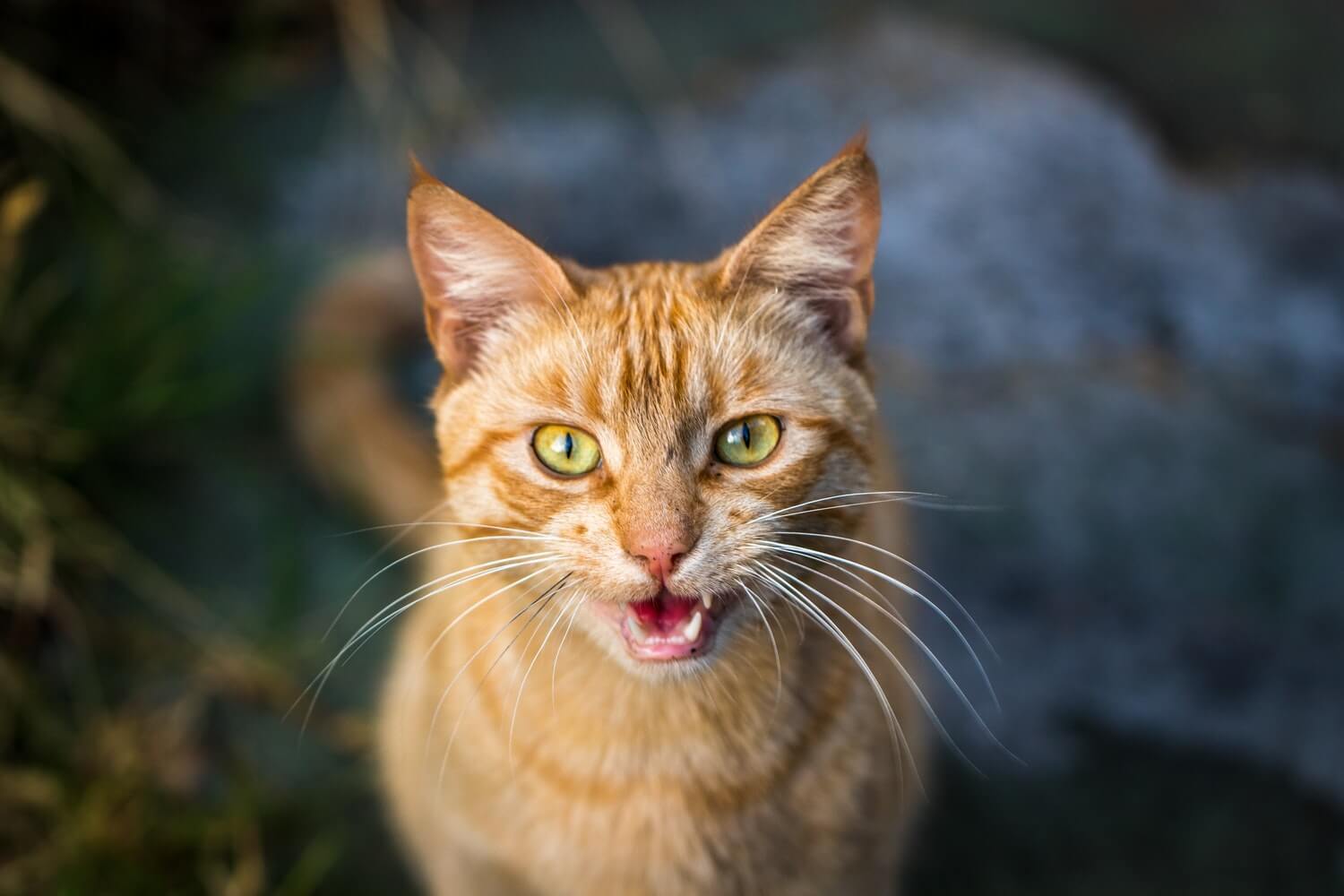
Do you own a cat? Have you ever wondered why cats meow? And how much of it is normal? As a cat parent, should you be concerned if your cat is meowing excessively? Let’s first understand why a cat meows and when you as a parent should see a vet.
Firstly, you must know that meowing is your cat’s way of talking to you. Apparently, some breeds like the Siamese cats tend to meow more than others. So, if you recently adopted a Siamese one, excessive meowing may be nothing to worry about. For other cat breeds, the reason why your cat meows vary as per their age. The pitch, frequency, volume, and length can give you an indication of the reason behind meowing. While fighting, mating or displaying territorial aggression cats make other sounds. These are purring, growling, howling, screaming or hissing (these sounds mostly indicate either aggression or defensive behavior).
Table of Contents
As a kitten
Cats, when they are babies (kittens), meow to their mother when they are hungry and want to be fed. Feeling scared or cold also make kittens meow. Surprisingly, adult cats do not meow at each other, but only at humans! It’s their way of communicating that they want something. With each other, adult cats use the language of touch, smells as well as expressions and body language. They smartly figure out that all these methods fail with humans and meowing works!
As an Adult
A grown-up cat will meow as and when she wants/needs something, and likely she is hungry or wants food.
Cats get more vocal closer to their feeding time or when they want a treat. It’s typically a medium-pitch one. It’s like their internal biological clock and meowing is the alarm for the parent.
Occasionally maybe OK. However, you should not succumb to the demand every time as that will encourage a bad habit-forming behavior. That’s why it’s important to have fixed timings for feeding. Soon your cat will understand that crying out of turn does not help.
Wants Attention
Perhaps your cat is meowing because it wants your attention. And that it manages to get for sure. She may want to play, cuddle around or be petted/stroked. After a hard day’s work, it can be a stress buster for you as well.
It’s scientifically proven that hugging or caressing pets lowers blood pressure and heart rate. The demand for something tends to be a long-drawn meow. But if she is nagging intolerably, do not spoil her by constant pampering.
On the contrary, reward her by paying attention when she’s quiet. Cats are intelligent and respond by behaving well once they get the message. It’s vital that you don’t punish her in any way for this irritating behavior as she will stop trusting you. She could even start to dislike you or become fearful.
Greeting
If your cat is alone for long hours, she feels happy once you get back home. So, it’s her way of expressing her emotion. A typical “Hi” is generally a high-pitch short meow while various meows show a little more excitement.
Sick
When you observe a sudden increase in your cat’s expression, it may indicate some form of sickness. If it continues and is accompanied by any other indication, see your vet immediately. She may need some blood tests to be conducted. You would want to rule out severe conditions like thyroid and kidney issues which can affect them. And possibly medication (if required). Hypertension in cats can cause sudden loss of vision, and this also leads to excessive vocalization. She may be trying to look for someone or asking for something she needs and can’t find. In case there is no physical ailment, and the behavior continues you need seek help from an animal behaviorist.
You May Also Interested In: When Cat Is Sick?
Hurt or Angry
A high pitch vocalization is an indication of pain if you happened to step on her). The pain could also be caused by urinary conditions (an infection or inflammation of the bladder). In such cases, meowing becomes more pronounced when around the litter box and trying to pee. Cats can also get angry when you violate their need for personal space. Such behavior could be triggered by a new pet (dog/cat) in the house or even noisy kids running around. In such situations, just back off and let your cat cool off rather than trying to calm her down by petting.
Wants You to Open The Door
Maybe she feels like going out and is telling you to open the door. At times like this, she may meow at the door itself. If outside she may be asking you to let her in. This could also indicate that the entrance to the room with the litter box is closed. If your cat is used to going out, it would be great to get a cat door fixed.
You May Also Interested In:
Feeling Stressed or Lonely
Cats can feel stressed due to a change of weather, location or family and express feelings of anxiety by meowing. Also, if your cat is home alone for excessively long hours, the loneliness can cause her to meow when she sees you. In such a case, you can possibly consider having a pet sitter spend some time with her during the day.
Wants to Mate
Female cats get hyper when on the heat. By persistently meowing she wants to communicate to the male her being available.
And the male counterparts start when they smell a female on heat. Getting your cat spayed/neutered will eliminate this cause of excessive meowing. It will also prevent accidental pregnancies.
Old Age
As cats get old, they face similar ailments like humans and these conditions. These include cognitive-dysfunction syndrome or feline version of Alzheimer’s. They can cause them to cry excessively especially during nights. Your vet may prescribe some medication to provide some relief to her.
Conclusion
Remember your cat has emotions and like us, humans, they want to express them. With time you will get better at interpreting your cat’s language and be able to make out what your cat wants and when to seek help from your vet. For all you know, your furry friend is a chatterbox and just loves talking to you. I mean meowing to you!
You May Also Interested In: 10 Healthiest and Best Dry Cat Foods Review with Guide
Share this:
- Click to share on Twitter (Opens in new window)
- Click to share on Facebook (Opens in new window)
- Click to share on Tumblr (Opens in new window)
- Click to share on Pinterest (Opens in new window)
- Click to share on Reddit (Opens in new window)
- Click to share on Telegram (Opens in new window)
- Click to share on WhatsApp (Opens in new window)
- Click to print (Opens in new window)
